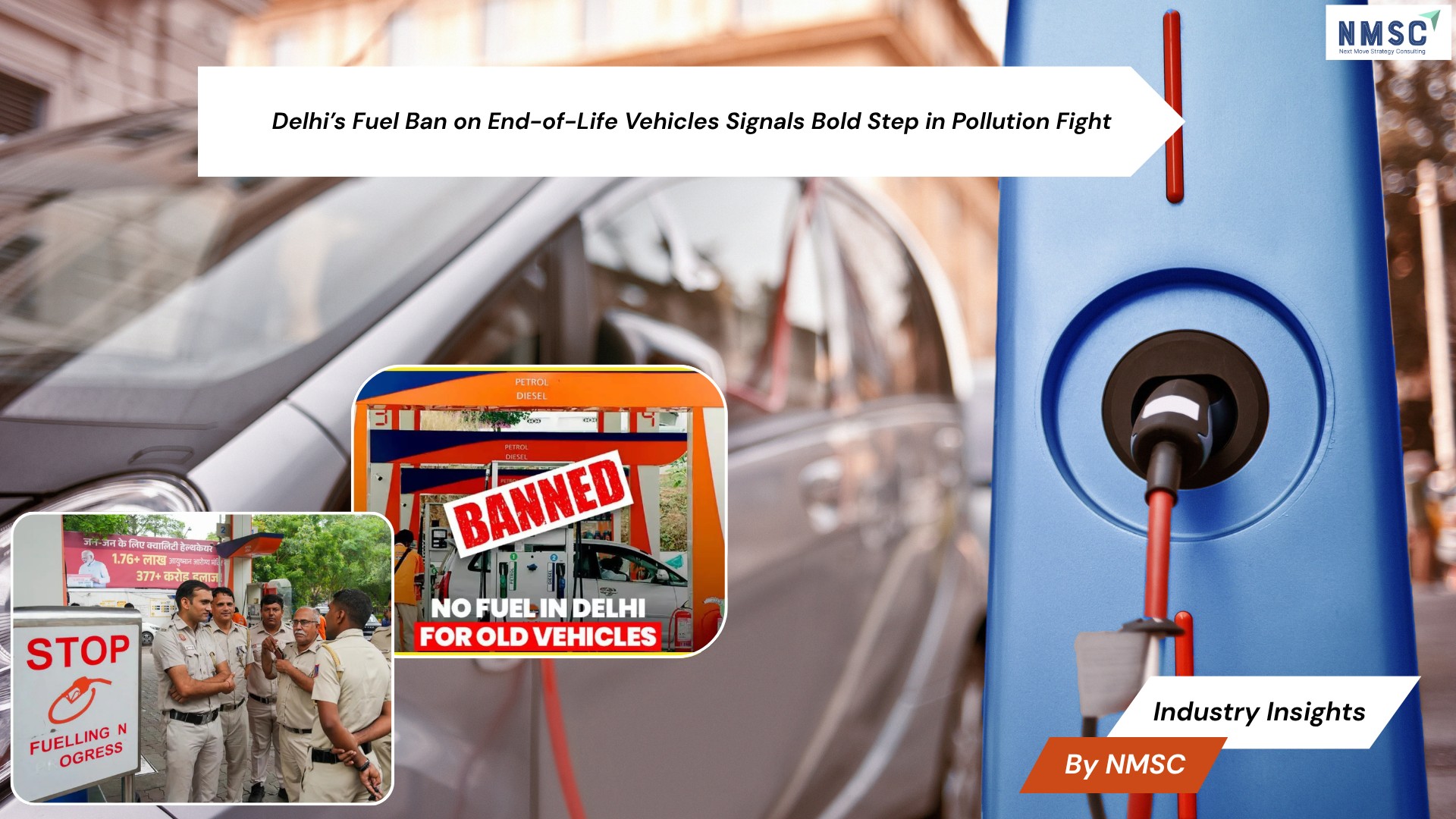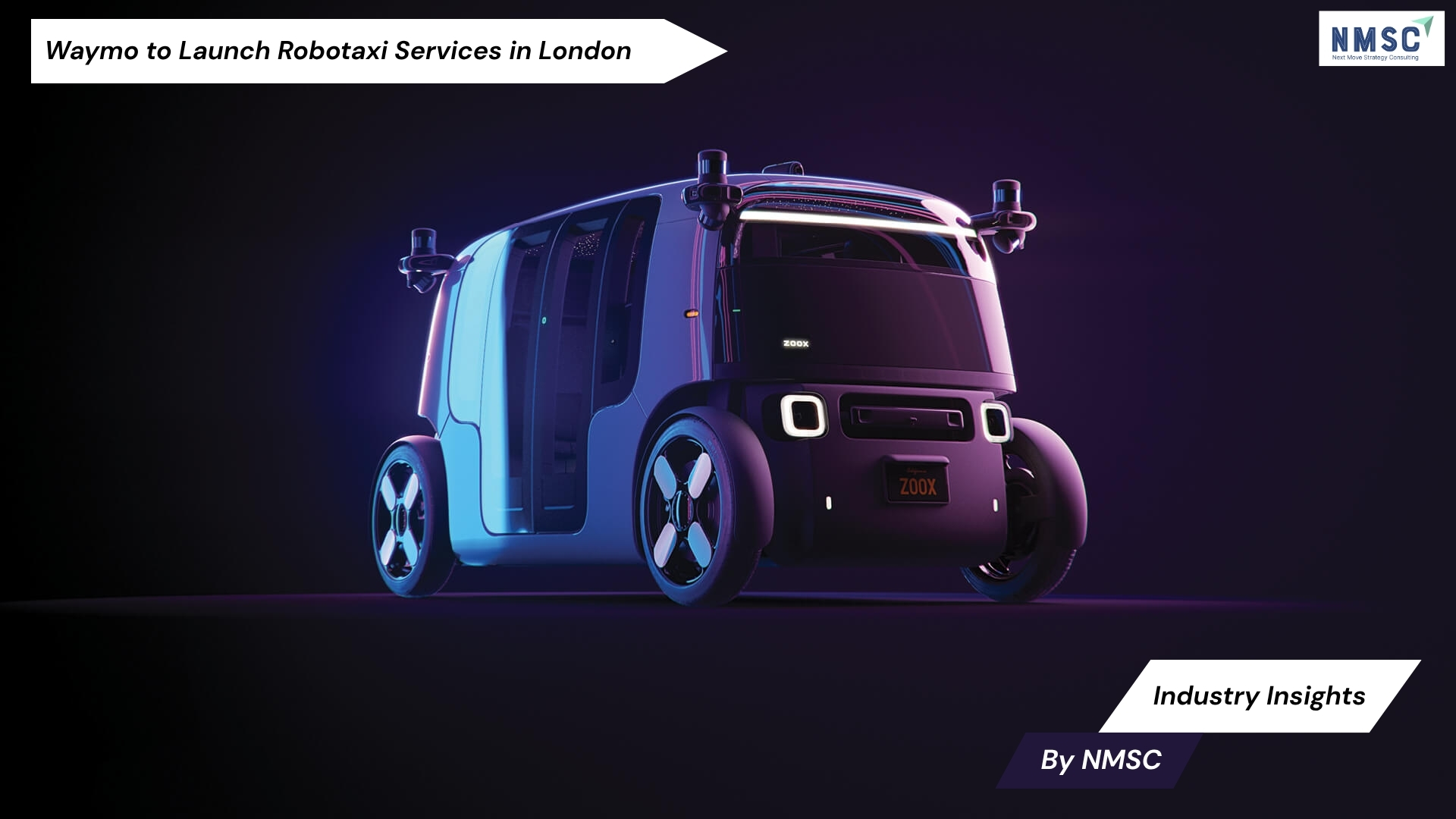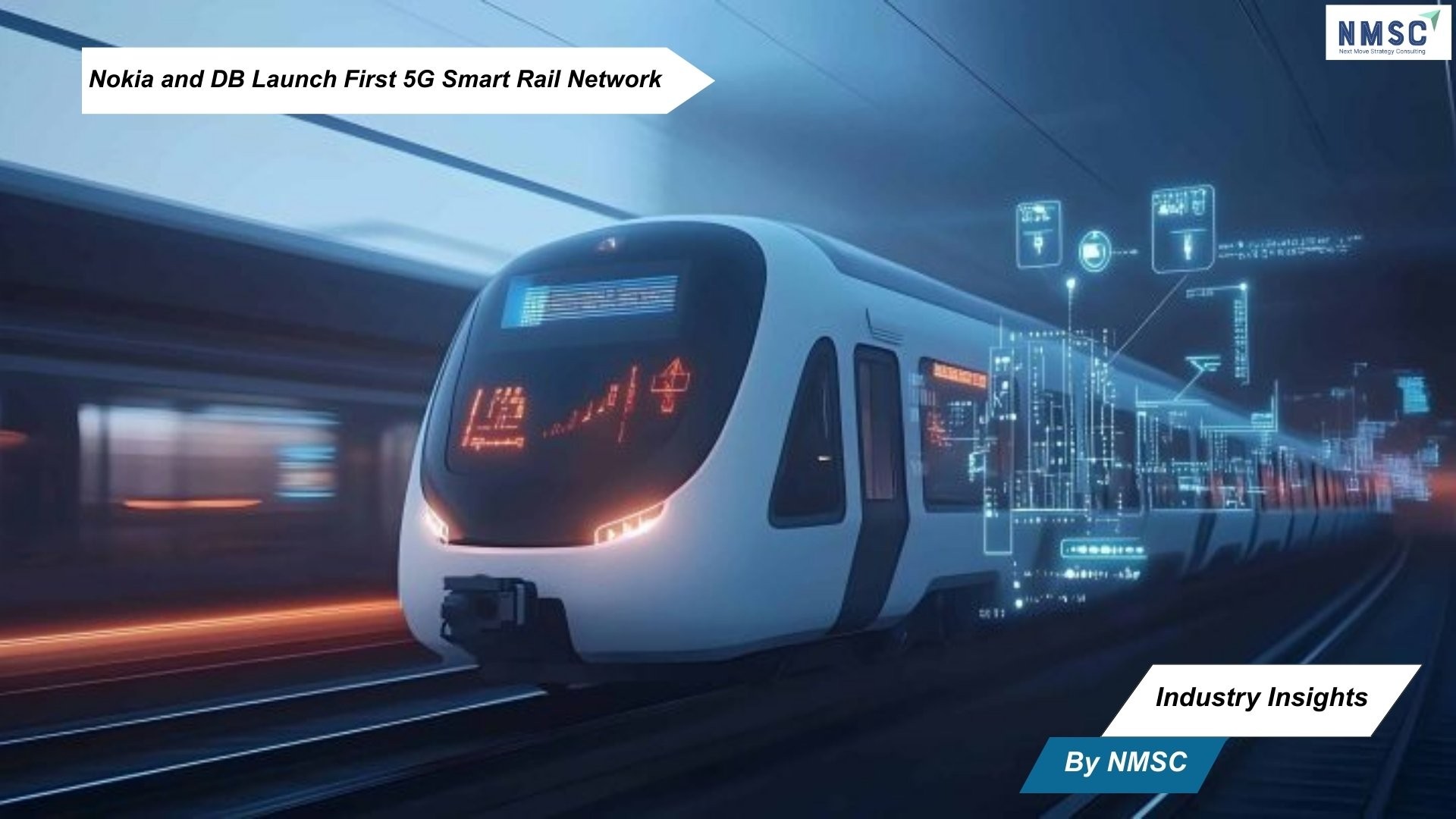Delhi’s Fuel Ban on End-of-Life Vehicles Signals Bold Step in Pollution Fight
Published: 2025-07-05

Industry Insights from Next Move Strategy Consulting
As Delhi grapples with severe air pollution, the city’s government has launched a sweeping initiative to curb emissions by banning fuel sales to end-of-life (EoL) vehicles. Effective July 1, 2025, this directive prohibits refueling for petrol vehicles older than 15 years and diesel vehicles older than 10 years, marking a significant escalation in the capital’s fight for cleaner air.
A Decisive Move Against Vehicular Pollution
On June 17, the Delhi government issued a Standard Operating Procedures (SOPs) for enforcing the ban on refueling. SOP states that all petrol pumps must maintain a log, either manual or digital, of all denied fuel transactions involving such vehicles.
Delhi’s air quality crisis, driven by vehicular emissions, has prompted stringent measures to phase out high-pollution vehicles. The Commission for Air Quality Management (CAQM) has issued Statutory Direction No. 89, mandating strict enforcement actions against all categories of end-of-life vehicles — including goods carriers, commercial vehicles, vintage models, and two-wheelers — throughout the National Capital Region (NCR). These vehicles, deem as significant contributors to the city’s toxic air, and are now barred from refueling at fuel stations across the capital.
“This is a critical step toward improving Delhi’s air quality,” a Transport Department official stated. “By restricting fuel to end-of-life vehicles, we aim to reduce emissions and protect public health in one of the world’s most polluted cities.”
Key Features of the Fuel Ban Initiative
-
Targeted Vehicles: Petrol and diesel vehicles over 15 years and diesel vehicles over 10 years are classified as EoL and denied fuel.
-
ANPR Enforcement: The Delhi Transport Infrastructure Development Corporation (DTIDC) has been tasked with ensuring the effective functioning of fuel stations to equipped with Automatic Number Plate Recognition (ANPR) cameras to identify EoL vehicles in real-time.
-
The implementation is backed by an advanced Automated Number Plate Recognition (ANPR) system installed at 498 fuel stations and three ISBTs. These cameras instantly scan license plates and verify details via the centralised VAHAN database. Non-compliant vehicles are flagged, fuel denied, and alerts sent to enforcement agencies for further action including impoundment and scrapping.
-
-
Penalties and Impoundment: Vehicles caught attempting to refuel face immediate impoundment and scrapping, with fines of ₹10,000 for four-wheelers and ₹5,000 for two-wheelers. Fuel stations that violate these norms will be reported weekly to the CAQM and the Ministry of Petroleum and Natural Gas for further action, with penalties on the fuel station operators under Section 192 of the Motor Vehicles Act, 1988.
-
Multi-Agency Deployment: Enforcement teams, including Delhi Polic and Traffic Police, monitor compliance at high-traffic fuel stations. Delhi Police personnel will be stationed at fuel stations numbered 1 to 100, while the Transport Department will deploy 59 dedicated teams to manage fuel stations numbered 101 to 159.
-
Public Awareness: Signage at fuel stations displays clear notices: “Fuel will not be dispensed to End-of-Life Vehicles — i.e., 15 years old Petrol and CNG and 10 years old Diesel 01.07.2025.”
Challenges and Implementation
The initiative, while ambitious, has faced scrutiny. On the first day, only 80 EoL vehicles were seized, attributed to low vehicle turnout at fuel stations. Enforcement relies heavily on technology, with ANPR cameras flagging valid vehicles and alerting pump operators due to technical glitches. However, concerns have been raised about the burden on fuel station owners, who face penalties under Section 192 of the Motor Vehicles Act, 1988, for non-compliance.
The Delhi High Court has agreed to hear a plea challenging the policy’s impact on petrol pump owners. Critics argue the Standard Operating Procedure (SOP) places undue responsibility on fuel stations without adequate legal authority or resources.
That being told, on July 3, the government has said that the fuel ban on overage vehicles (over 10 years for diesel vehicles and over 15 years for petrol vehicles) is not feasible in the city due to technological challenges and complex systems.
“We urge the Commission to put the implementation of Direction No. 89 on hold with immediate effect till the Automatic Number Plate Recognition (ANPR) system is seamlessly integrated across the entire NCR,” the minister said in the letter to CAQM, according to ANI.
A Step Toward Cleaner Air
Delhi’s fuel ban aligns with broader efforts to combat air pollution, which the Centre for Science and Environment (CSE) reports accounts for 51% of local emissions. By targeting EoL vehicles, the policy aims to reduce the environmental impact of aging, high-emission vehicles.
Apart from environmental benefits, the ban is expected to boost the automobile sector and government revenues. According to estimates, replacing old vehicles with new ones could generate trillions of rupees in turnover for the auto industry and significant tax revenue for both central and state governments.
The Delhi government has also issued Standard Operating Procedures (SOPs) for fuel stations, including maintaining logs of denied fuel transactions and regular reporting to the authorities. The public is being urged to cooperate with the new rules for the sake of cleaner air and a healthier city.
Industry Response and Future Outlook
The ban has sparked mixed reactions. While environmental advocates praise the move as a necessary step, some vehicle owners express frustration, citing financial losses from forced scrapping or sales at reduced prices. Options for owners include scrapping vehicles at Registered Vehicle Scrapping Facilities (RVSFs) under the Vehicle Scrappage Policy or converting to Compressed Natural Gas (CNG) with ARAI-certified kits to extend vehicle lifespans.
Delhi leads the charge in pollution control, and with plans to extend the mandate to Gurugram, Faridabad, Noida, Ghaziabad, and Sonipat by November 1, 2025, the region is poised for a transformative shift in environmental policy.
Redefining Urban Mobility
While the recent pause in the EoL fuel ban signals a temporary shift in momentum, it does not dilute the urgency of Delhi’s pollution crisis or the government's long-term vision for sustainable urban mobility. The technological and logistical hurdles cited—particularly the incomplete integration of ANPR systems—highlight the complexities of implementing such large-scale environmental reforms. However, this delay also provides an opportunity to fine-tune infrastructure, address stakeholder concerns, and ensure a more equitable rollout. If executed effectively, the fuel ban could still become a landmark policy, setting a precedent for urban pollution control across India’s megacities and reinforcing Delhi’s commitment to a cleaner, healthier future.
Source: https://www.hindustantimes.com/india-news/no-fuel-for-end-of-life-vehicles-in-delhi
Prepared by: Next Move Strategy Consulting
















Add Comment